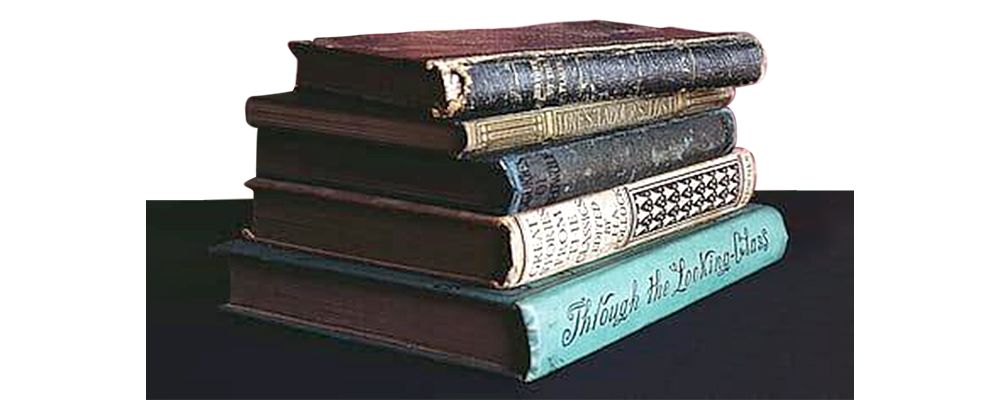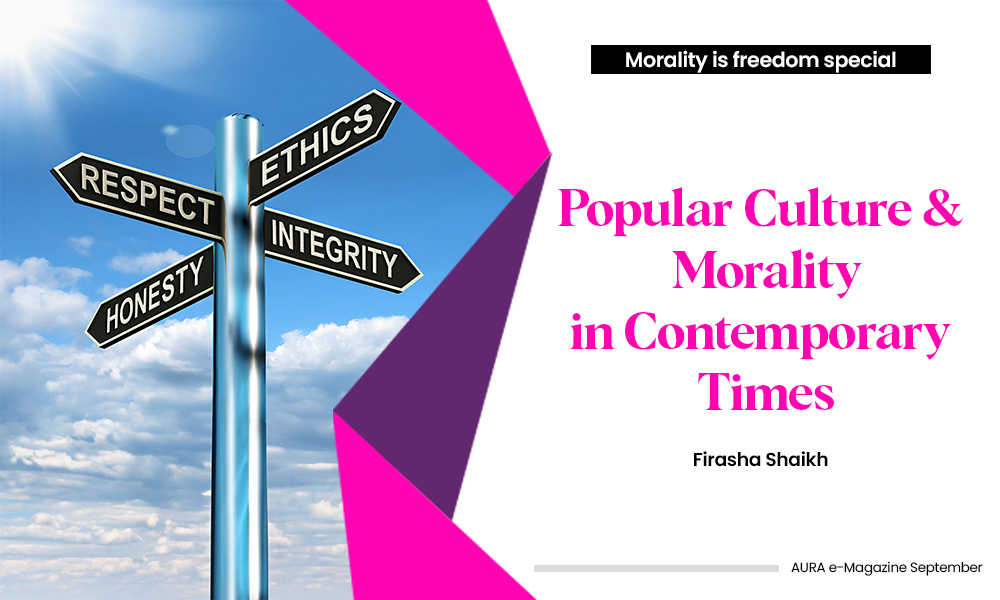
I often wanted to read my peers’ books when I was younger, but my parents wouldn’t let me. If I had a dollar for every time that happened, I’d be a millionaire.
I remember resenting and wondering why they wouldn’t let me read them. It wasn’t like they were inappropriate or “dirty” books; they were considered age-appropriate for the time. Yet, my parents still said no.
Now, years later, I see articles and video essays by people who aren’t necessarily religious or conservative— in fact, many of them are liberal or secular—criticising those same books for promoting problematic ideas and values. Some of the authors even have controversial political views (like being Zionist supporters).
My parents may not have had the academic or social justice jargon to explain why they didn’t want me to read those books, but now, in hindsight, I can appreciate what they did.
The most common criticism of pop culture is how capitalism, commodification, hyper-sexualisation, and the internet have impacted it, leading to pop culture exemplifying problematic values. With the kinds of themes prominent in trending books, movies, songs, etc., which would be considered inappropriate even two or three generations ago, the window of what is considered ‘acceptable’ keeps expanding disturbingly.
In the case of cinema, namely Bollywood, many analyses exist on how the dominant political culture influenced films’ themes throughout different eras. For example, the post-LPG neoliberal economic reforms era, coinciding with the rise of Hindu nationalism, had an interesting influence on films of that era. Upward mobility and wealth acquisition abroad while still having a jingoistic reverence for the homeland were themes that were glorified and promoted extremely subtly.
Regarding literature, one only needs to glance over the bestsellers list on Amazon India to see how the dominant socio-political culture has impacted reading preferences. The most widely read genres in India are business, self-help, or pseudo-scientific spirituality books in nonfiction. At the same time, fiction is “dark romance”—books that contain deeply disturbing romanticisations of violence and abuse, a reflection of the overarching issues with Indian society.
Apart from capitalism’s effect on popular culture, the other extremely disrupting factor has been that of hyper-sexualisation. The inundation of explicit sexual content in any kind of media nowadays is appalling. Apart from the very obvious damage this does to the morals and psyche of society at large, particularly youth, such hyper-sexualisation also ruins the skill of artistic creativity or the capacity for creative imagination in society.
In his 1934 book Sex and Culture, the social anthropologist J.D.Unwin presented his findings from a study of 86 different cultures (80 primitive tribal ones and six known civilisations) throughout human history. He found that whenever chastity (known as haya in Islam) was removed from society, it was destroyed within three generations. It’s interesting to note that Unwin was not religious; rather, he was a secular rationalist. He admits that perhaps religions understood something about the importance of chastity. He notes how, when sex is unleashed on a culture, the creative potential of that culture is lost. He mentions how, historically, societies and cultures that valued chastity and modesty, that delayed sex until marriage, produced the greatest works of art, literature and philosophy, whilst the same could not be said for cultures that indulged in open sexual relations.
Theodor Adorno, a famous popular culture critic, emphasised that beyond value degeneration, an obvious problem, the deeper problem with how pop culture is produced is how it also affects what he calls “aesthetic freedom”. This refers to the ability to experience and understand different art forms, be it music, cinema, literature, etc., in “integrated, unified wholes”. But how pop culture has been transformed by capitalism, hyper-sexualisation, and the social media
The most common criticism of pop culture is how capitalism, commodification, hyper-sexualisation, and the internet have impacted it, leading to pop culture exemplifying problematic values. With the kinds of themes prominent in trending books, movies, songs, etc., which would be considered inappropriate even two or three generations ago, the window of what is considered ‘acceptable’ keeps expanding disturbingly.
Apart from capitalism’s effect on popular culture, the other extremely disrupting factor has been that of hyper-sexualisation. The inundation of explicit sexual content in any kind of media nowadays is appalling. Apart from the very obvious damage this does to the morals and psyche of society at large, particularly youth, such hyper-sexualisation also ruins the skill of artistic creativity or the capacity for creative imagination in society.
algorithm model means that we can no longer experience art in such unified or integrated forms. Instead, thanks to the algorithm model, music is now produced for its ability to trend on reels and TikTok videos, contemporary fiction books are written to fulfil certain ‘bookstagram’ requirements for success, topics that require in-depth discussion and analysis are increasingly reduced to minute-long sound bytes or carousel posts.
Ultimately, the higher aim of all art is to comfort the disturbed and disturb the comfortable, not simply to entertain but also to enrich; all of it becomes a casualty for quick and easily digestible entertainment.
The project of meaning-making becomes an afterthought.
Walking through a bookstore as an adult and now having the independence to read whatever I want, without having to worry about my parents censoring me for it, I realised what a blessing it is to be able to discern what kind of values or ideology a book or novel is promoting subliminally. Most authors argue that their work is strictly storytelling, that they are not pushing for any agenda, and that the reader can decide the work’s message. As brilliant as their story might be, though, if it promotes problematic belief systems to young, impressionable minds or even to adults who haven’t had exposure to political awakening, then their art is ultimately falling into popular culture’s trap of reinforcing the status quo and taking away from the meaning-making project.
In the ‘separation of art from artist’ debate (which writers/creatives from marginalised backgrounds often encounter), a counter-critique would be why should our art necessarily be revolutionary, make some grand social commentary, or be anti-status quo-ist? Why can’t it just be purely for entertainment or story-telling?
Returning to Adorno again, lack of aesthetic freedom results in decreased social freedom.
It’s no secret that certain stories with certain archetypes sell more, be it publishing or cinema. When we disregard our moral responsibility to convey the values important to us through our art or even neglect to be conscious consumers of revolutionary art, we effectively consent for the ideological status quo to continue. When we accept the slow but steady degeneration of moral values in pop culture, we allow ideological power structures of society to be further normalised. In continuing to engage with the constant stream of quick-fix entertainment bombarded by the algorithm, we unintentionally reinforce the same structures and systems responsible for the deterioration of the standards for art and culture. Marginalised, deserving voices in the arts continue to get sidelined, whilst those with the ‘right’ kind of social capital continue to get platformed, published, screened, streamed, and supported.
In doing so, we are depriving ourselves of the world of diversity of thought and opinion that we might otherwise have been exposed to.
We inadvertently contribute to the further narrowing of the innumerable creative potentialities that modernity and capitalism have already set in erosion.
For art to be truly meaningful in any form, such as books, films, music, fashion, or even social media, it should consciously attempt to subvert the limitations imposed by the power structures that seek to streamline it.
References:
New Kings of the World: Dispatches from Bollywood, Dizi, and K-Pop by Fatima Bhutto
Against guilty pleasures: Adorno on the crimes of pop culture | Aeon Essays
How Lust Ruins Love | Amir Sulaiman and Hamza Yusuf (youtube.com)


0 Comments